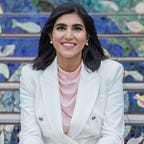Palestine: Justice Means Freedom
“You can’t separate peace from freedom because no one can be at peace unless he has his freedom.”
The driver behind these essays was to share my first-hand, on-the-ground experience with both Palestinian and Israeli guides with you to build awareness of the plight of the Palestinian people who currently live under military occupation that oppresses their human rights and opportunity for better lives. It’s not a perspective we see or hear much of in the West. In addition, I hope these posts and essays have armed you with facts, history, language and terminology to help you feel more informed and better equipped to engage on this very important human rights issue.
If the status quo of the last five decades holds, a two-state solution is not possible, and our elected leaders know that. Do not take the lip service of people saying they believe in a “two-state solution” if they’re not doing the awareness building and advocacy work to end the occupation. Is a two-state solution ideal and the best possible solution? Yes. Is it practical without the settlement program being dismantled and the military occupation ending? No.
As former Secretary of State John Kerry stated in a 2016 speech, “a two-state solution is the only way to achieve a just and lasting peace between Israelis and Palestinians. It is the only solution to ensure Israel’s future as a Jewish and democratic state.” He also noted that violence, terrorism, settlement expansion, and “a seemingly endless occupation” destroy hopes for peace “on both sides and cement a one-state reality that most people do not actually want.” He went on to say: “If the choice is one state, Israel can either be Jewish or democratic; it cannot be both, and it won’t ever really be at peace.” And that means things have to change — we cannot afford the status quo any longer. The Israeli military occupation of Palestine needs to end.
The U.S. is complicit in the military occupation of Palestine and for how far the situation has escalated today. Per U.S. News & World Report, Israel has received the most U.S. foreign assistance of any country since World War II ($243.9 billion). And the U.S. has vetoed at least 53 UN Security Council resolutions critical of Israel over the last 50 years. We as Americans need to take responsibility for ensuring our nation doesn’t empower an ally to act with impunity when the human rights abuses of apartheid and violations of international law are abundantly clear.
Social media has helped bring awareness of the realities on the ground in the occupied Palestine to people around the world, including to those of us in Western nations for whom these stories and facts on the ground have been filtered from our view through our media and educational and political systems. Some examples — in 2021, the California State Board of Education (SBE) made the decision to remove the Arab-American section of the Ethnic Studies Model Curriculum (ESMC) because of its references to Palestinian history and narratives. And 27 states have adopted laws that penalize businesses, organizations and individuals that engage in or call for boycotts of Israel.
However, we’re living through a time of extraordinary change and I truly believe that many of the systems and norms we hold as forever true today will completely change and be transformed in the next decade. And elected leaders answer to their constituents at the end of the day, no matter how powerful or invincible they seem. Do not lose hope — our collective future will look completely different from the past.
Vote with your values and make your voice heard by asking elected leaders and political candidates hard questions about where they stand on these issues and why. Pay attention to which groups those candidates take money from and what type of elected leaders those groups support. Donate and turn up to elect people to local, state and federal offices who are actual change agents. And pay attention to what’s going on in your state — this issue permeates the educational and political systems in our country.
Many people don’t feel comfortable speaking out on this issue, but things will not change until more of us use our voice to state and bring awareness to what we can clearly see is brutal and unjust. I understand the fear. I have felt it, too. But it is not worth being silent as millions of people suffer and are robbed of opportunity.
“No one is free until we are all free.” — Martin Luther King Jr.
This essay is the final post in my series documenting my visit to Israel and Palestine in July 2022. The previous essays cover an introduction to this topic; an the military occupation in Hebron; my experience with surveillance, policing and profiling in Jerusalem; and my visit to the West Bank separation wall and a Palestinian refugee camp in Bethlehem.
Resources and reports:
- United Nations 2022 Special Report on Israeli Apartheid
- Amnesty International 2022 Report on Israeli Apartheid
- Letter of Support from Israeli Human Rights organizations in support of Amnesty International’s 2022 Report
- Human Rights Watch 2021 Report on Israeli Apartheid
- U.S. Secretary of State John Kerry’s 2016 full speech on Israeli and Palestinian peace
- 50 Years of Illegal Settlements
Organizations to follow to learn more:
